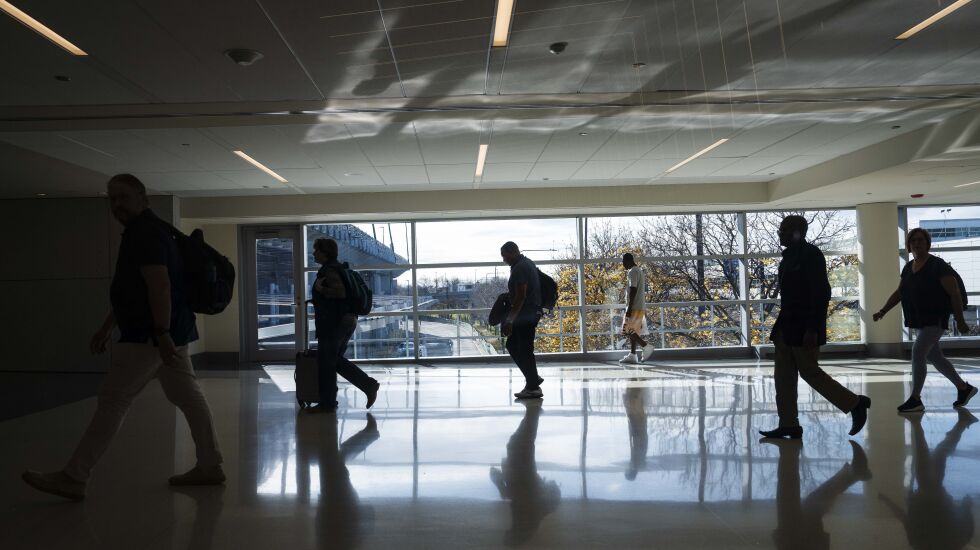
Health officials are warning Thanksgiving travelers to take precautions as COVID-19 hospitalizations are spiking ahead of the peak holiday travel week.
COVID-19-related hospitalizations have surged by nearly 17% over the last week, with the city averaging one death a day from the respiratory virus, according to the latest city data. Several wastewater treatment facilities in the city have also reported increased detection of the virus, according to the CDC.
With a record number of people expected to go through Illinois’ airports this week, experts warn that a lack of caution could lead to the spread worsening. About 290,000 travelers are expected to go through airports, an increase of 8% over last year and topping pre-pandemic levels, the Transportation Security Administration said.
Yanina Purim-Shem-Tov, an emergency medicine doctor at Rush Hospital, said the same measures used during the height of the pandemic — masking, distancing and hand washing — will help to keep people safe through another holiday surge.
“All of us have fatigue of COVID, and we may want to relax our precautions,” Purim-Shem-Tov said. But “I cannot recommend enough to keep your vigilance, keep your hands clean, and if you have to be in an enclosed space, we’re still recommending masks.”
She added that although it was previously believed patients could either have COVID-19 or the flu, the hospital has since seen patients with both at the same time, and recommended similar precautions — as well as COVID booster and flu shots, especially for the elderly or those with compromised immune systems, such as people undergoing chemotherapy.
The state health agency said the risk of COVID-19 is lower than it has been the last three years — and city data show almost a quarter of Chicagoans have received the most recent booster, despite insurance and supply issues last month. Officials still urged people to increase ventilation at gatherings to help prevent the spread of the virus.
Purim-Shem-Tov also said Rush has seen an uptick in RSV, or respiratory syncytial virus, in children. Though it hasn’t reached the extreme numbers of last year, and will present as “cold-like” in most healthy adults, she still suggests taking similar precautions as the flu and COVID-19.
“This is the season,” Purim-Shem-Tov said.







